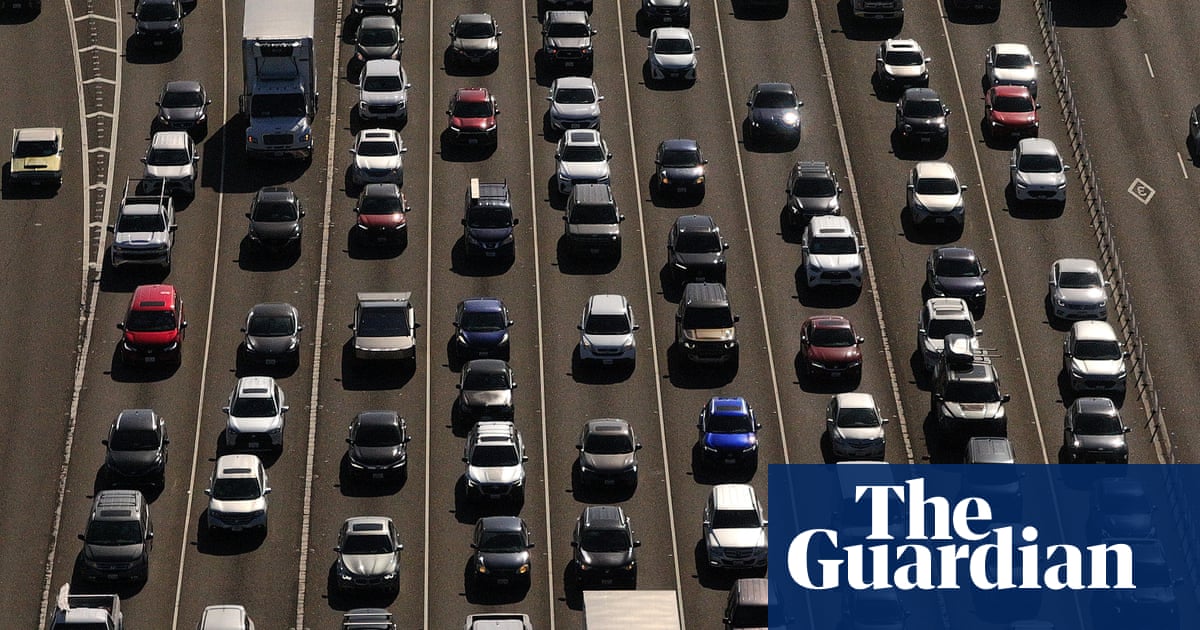Fossil fuel companies are able to challenge California’s ability to set stricter standards reducing the amount of polluting coming from cars, theUS supreme courthas ruled in a case that is set to unravel one of the key tools used to curb planet-heating emissions in recent years.
The conservative-dominated supreme court voted by seven to two to back a challenge by oil and gas companies, along with 17 Republican-led states, to a waiver thatCaliforniahas received periodically from the federal government since 1967 that allows it to set tougher standards than national rules limiting pollution from cars. The state has separately stipulated that only zero-emission cars will be able to sold there by 2035.
Although states are typically not allowed to set their own standards aside from the federal Clean Air Act, California has been given unique authority to do so via a waiver that has seen it become a pioneer in pushing for cleaner cars. Other states are allowed to copy California’s stricter standard, too.
But oil and gas companies, as well as Republican politicians, have complained about the waiver, arguing that it caused financial harm. The waiver was removed during Donald Trump’s first term but then reinstated by Joe Biden’s administration. Trump is, again, looking into whether to revoke the waiver.
The justices’ ruling overturned a lower court’s decision to dismiss the lawsuit by a ValeroEnergysubsidiary and fuel industry groups.
The lower court had concluded that the plaintiffs lacked the required legal standing to challenge a 2022 EPA decision to let California set its own regulations.
“The government generally may not target a business or industry through stringent and allegedly unlawful regulation, and then evade the resulting lawsuits by claiming that the targets of its regulation should be locked out of court as unaffected bystanders,” conservative Justice Brett Kavanaugh wrote for the majority.
Liberal Justices Sonia Sotomayor and Ketanji Brown Jackson dissented from the decision.
The lower court had previously ruled that the oil and gas industry didn’t have legal standing to attempt to topple the California waiver but a challenge to this reached the supreme court, which appeared sympathetic to the claim when the case was heard in April. “It’s not that high a burden,” Amy Coney Barrett, one of the justices, said about proof of the alleged harm.
California and the federal government have been allowed to “stretch and abuse” the Clean Air Act, the American Fuel & Petrochemical Manufacturers, one of the groups challenging the waiver, has complained.
But environmentalists and California’s Democratic leadership have defended the waiver, arguing that it has helped push forward vehicle innovation and help cut greenhouse gases. Transportation is responsible for more planet-heating pollution in the US than any other sector.
“California and other clean car states cannot achieve federal clean air standards and protect communities without reducing harmful transportation pollution,” said Andrea Issod, senior attorney at the Sierra Club. “We stand with these states to defend their well-established authority to set standards for clean cars.”
